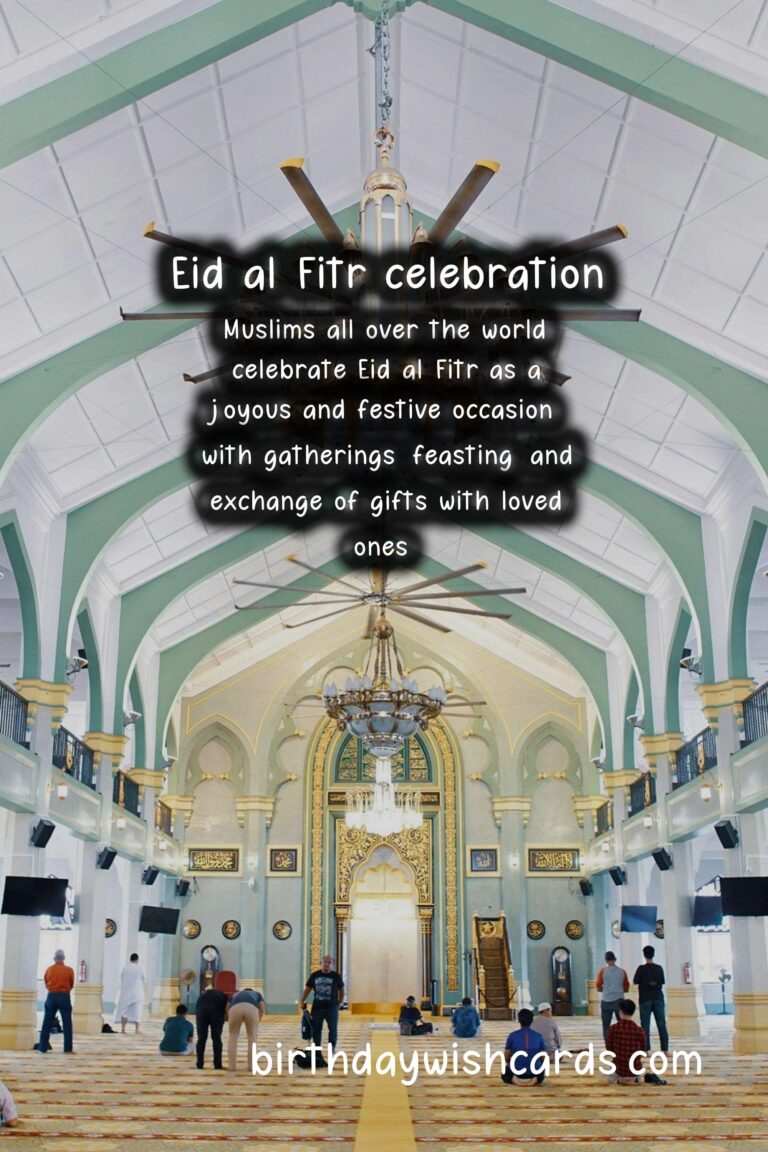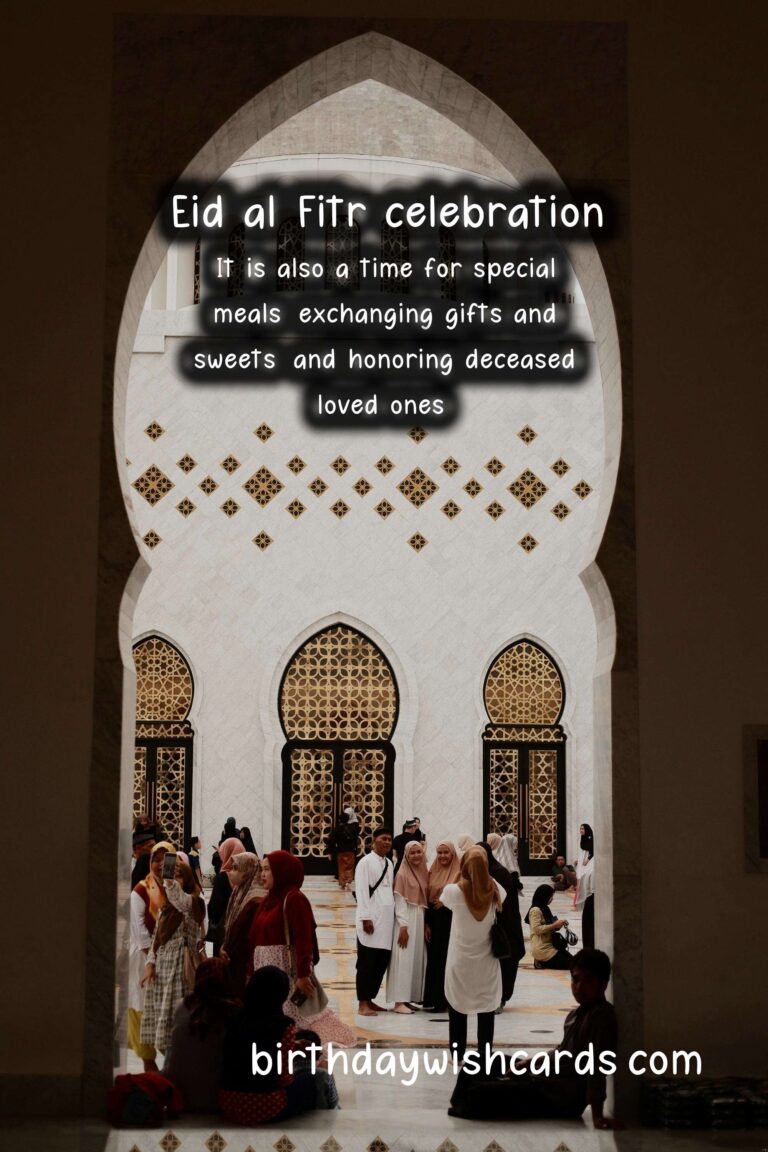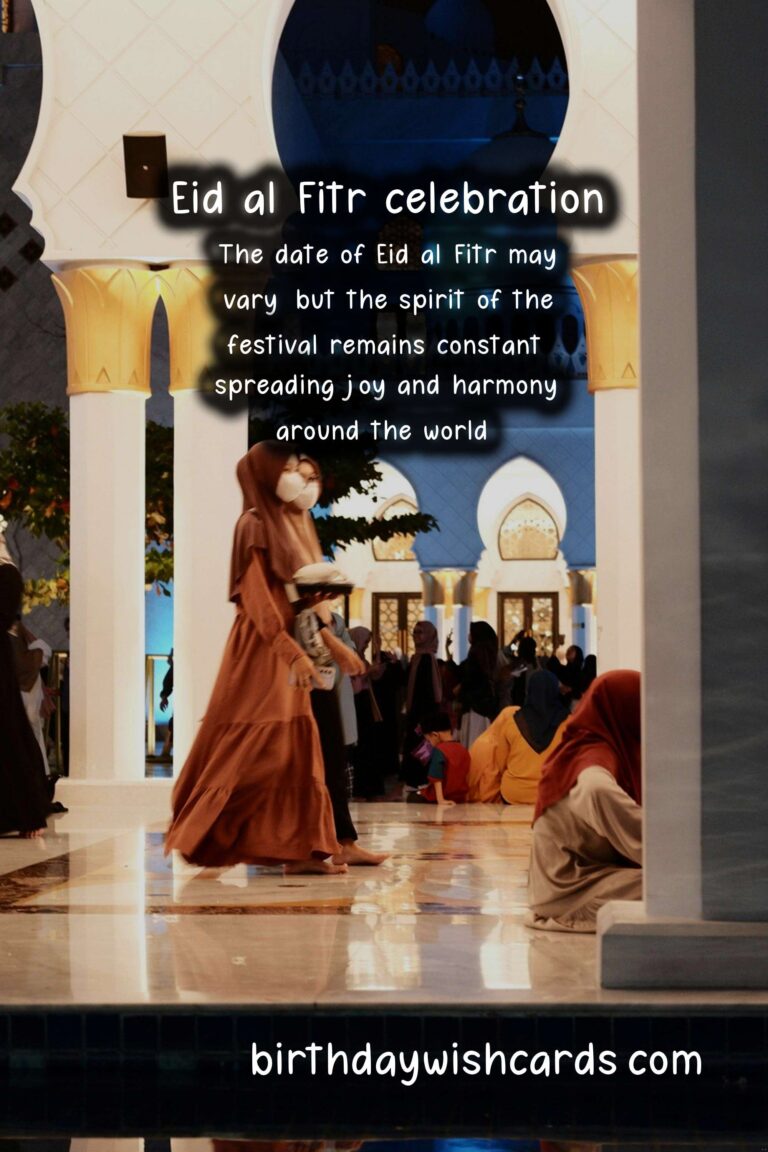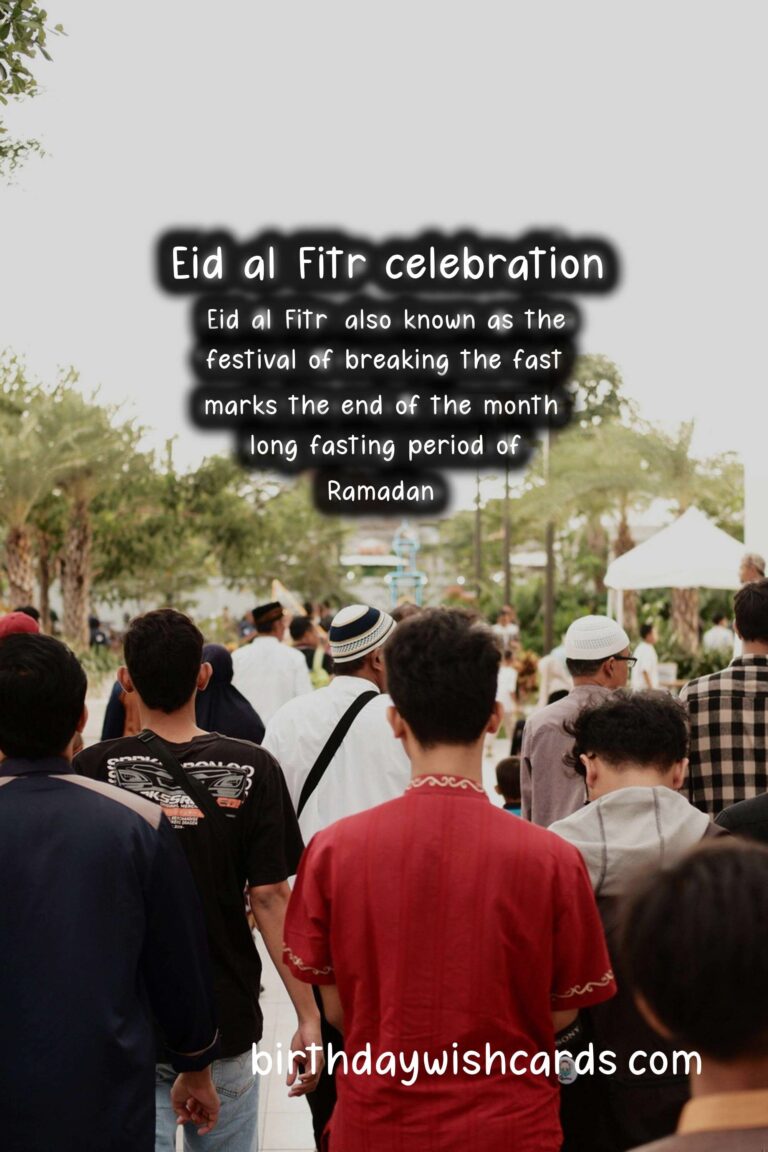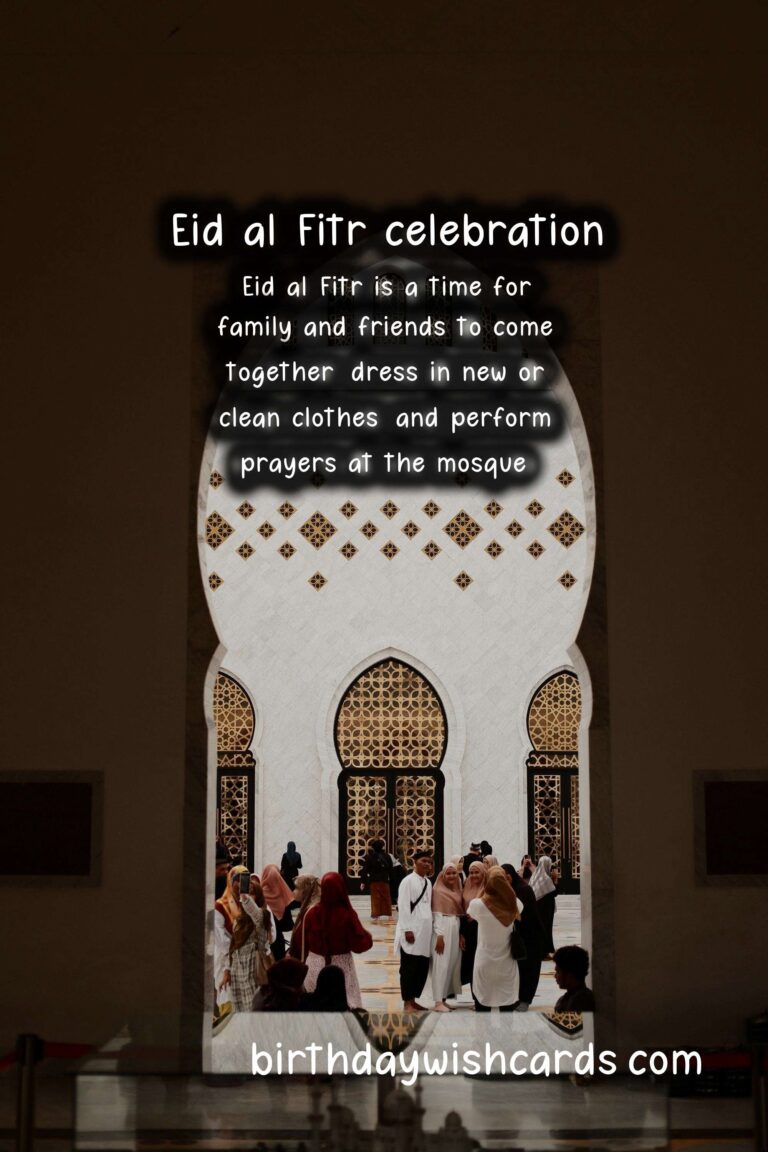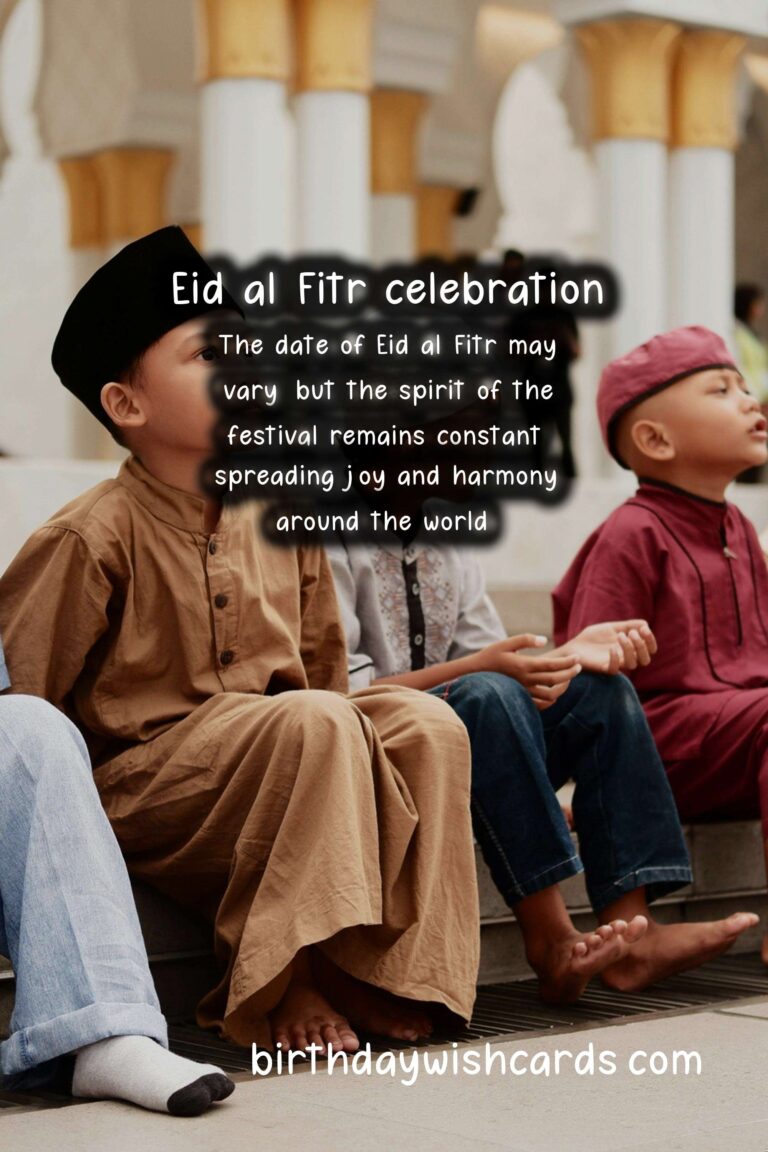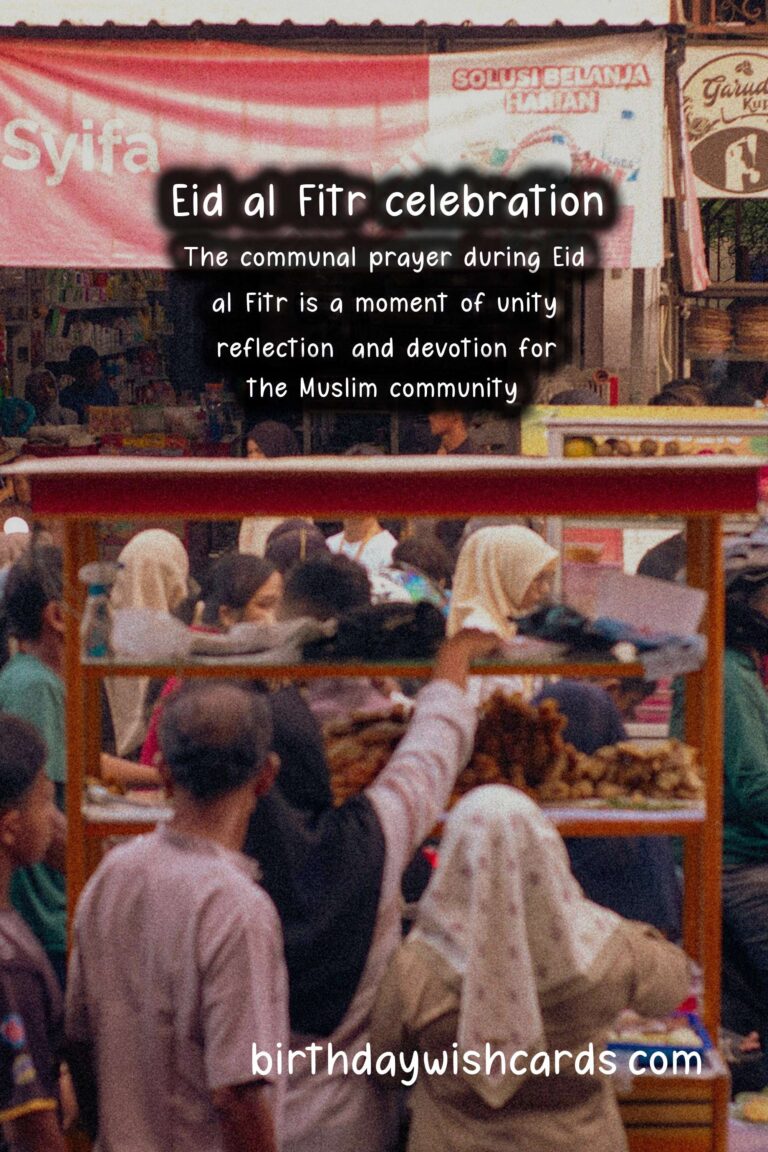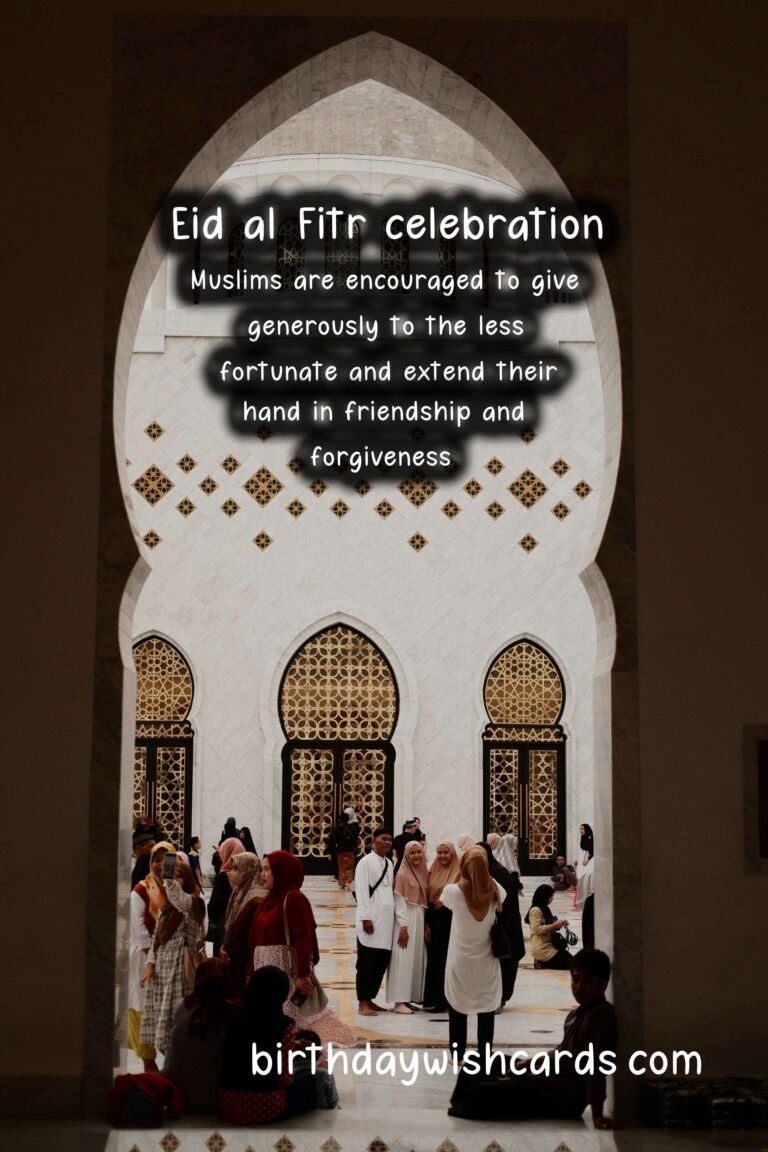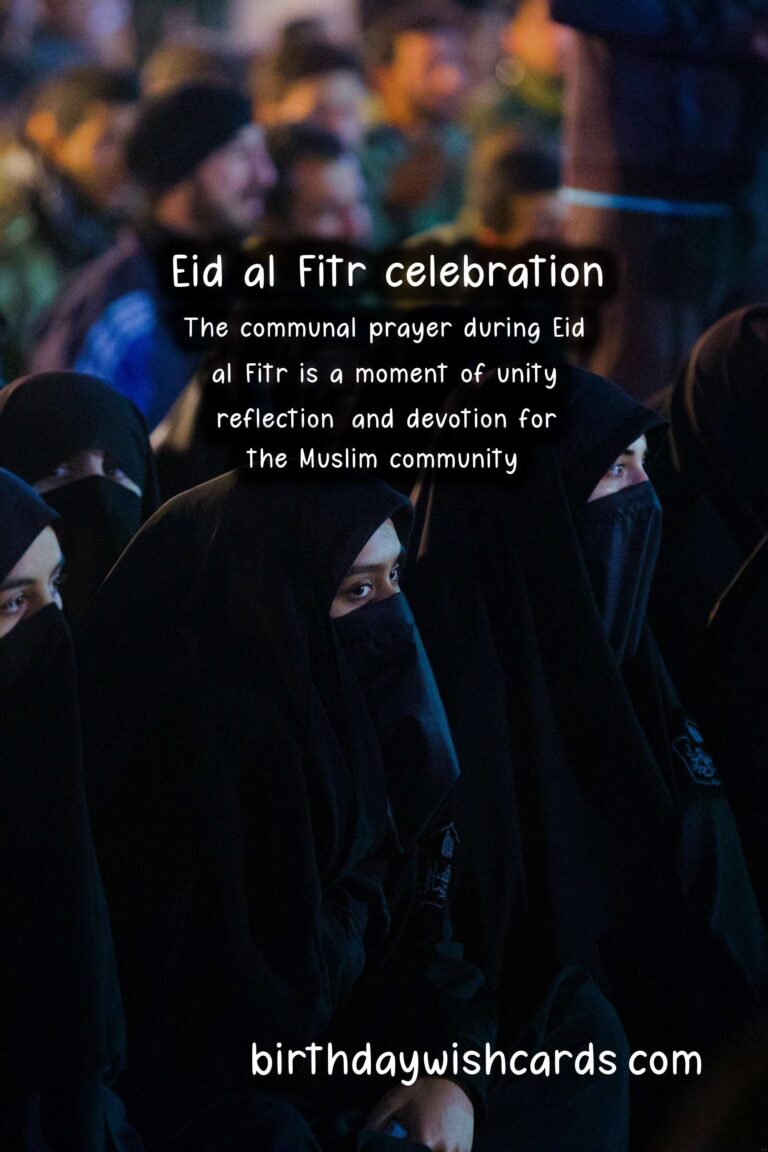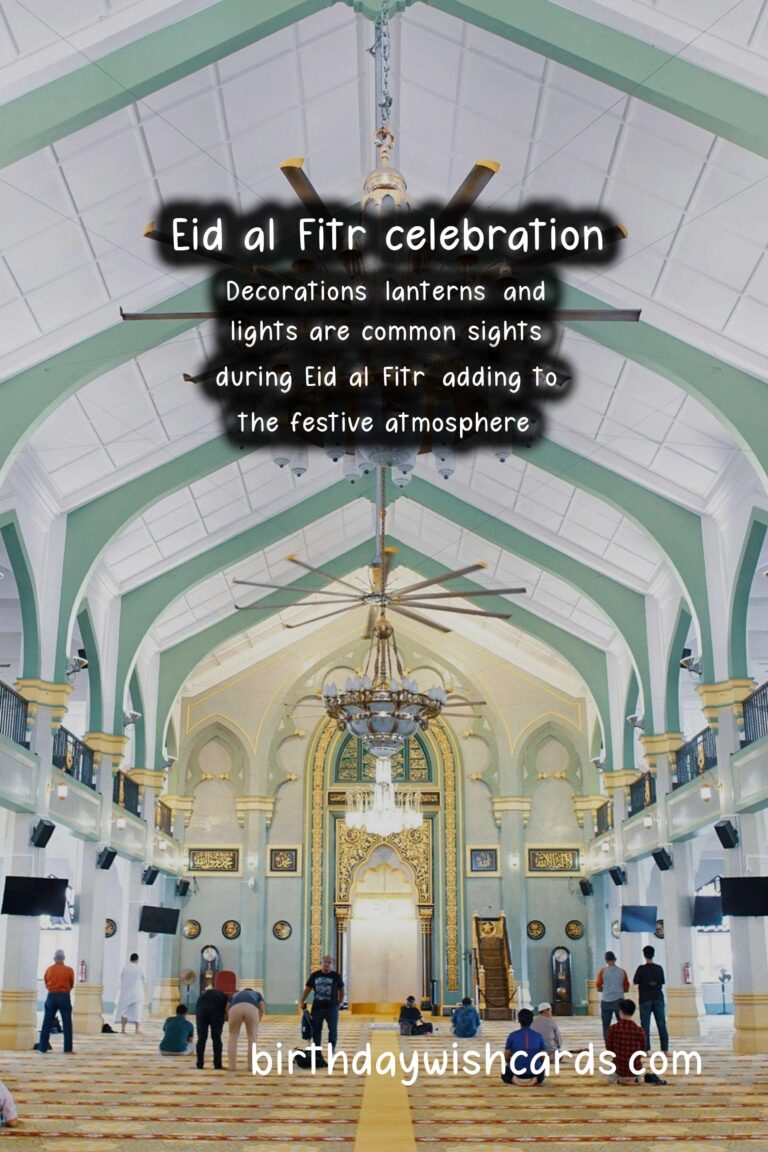
Eid al-Fitr, also known as the festival of breaking the fast, is an important festival in the Islamic calendar that marks the end of the month-long fasting period of Ramadan. It is celebrated by Muslims all over the world as a joyous and festive occasion, with gatherings, feasting, and exchange of gifts with loved ones. The date of Eid al-Fitr varies every year, as it follows the lunar calendar, but the spirit of the celebration remains the same.
The Meaning and Significance of Eid al-Fitr
The word ‘Eid’ in Arabic means ‘festivity’ or ‘celebration’ and ‘Fitr’ means ‘breaking the fast’. Therefore, Eid al-Fitr is literally translated as the ‘festival of breaking the fast’, marking the end of the month-long practice of abstaining from food and drink during the daylight hours. This period of fasting is a spiritual journey for Muslims, reflecting on their faith, practicing self-control, and expressing gratitude for the blessings in their lives.
Eid al-Fitr is also a celebration of the generosity and compassion of the Islamic community. It is a time to show kindness and support for those in need, as charity and sharing are important values in Islam. Muslims are encouraged to give generously to the less fortunate, and to extend their hand in friendship and forgiveness to all.
The Traditions and Customs of Eid al-Fitr
Eid al-Fitr is a time for family and friends to come together and celebrate the end of the month of fasting. Muslims start the day by performing prayers at the mosque, dressed in new or clean clothes. Special meals are prepared, and gifts and sweets are exchanged, especially for children. It is also common for families to visit the graves of deceased loved ones to offer prayers and remember them on this special day.
In many Muslim countries, it is customary to decorate homes and streets with lights, lanterns, and colorful decorations. Young children often receive gifts of money, known as ‘Eidi’, from their elders, which adds to the excitement and joy of the festivities.
The Significance of Prayers and Community during Eid al-Fitr
One of the most important aspects of Eid al-Fitr is the communal prayer that brings together Muslims of all ages and backgrounds. This prayer is usually held in an open space, such as a park or a stadium, to accommodate the large number of people. The prayer is led by an Imam, and is a moment of unity, reflection, and devotion for the community.
Eid al-Fitr is also a time to strengthen bonds with family and friends, and to reach out to those who are in need of support. It is a chance to renew relationships, seek forgiveness, and spread love and harmony in the world.
In Conclusion
Eid al-Fitr is a celebration of faith, gratitude, and generosity that brings Muslims together in a spirit of unity and compassion. It is a time to reflect on one’s faith, give thanks for blessings, and share joy with loved ones and the wider community. The date of Eid al-Fitr may vary, but the spirit of the festival remains constant, spreading love, kindness, and harmony around the world.
Eid al-Fitr, also known as the festival of breaking the fast, marks the end of the month-long fasting period of Ramadan. Muslims all over the world celebrate Eid al-Fitr as a joyous and festive occasion, with gatherings, feasting, and exchange of gifts with loved ones. The date of Eid al-Fitr varies every year, but the spirit of the celebration remains the same. The word ‘Eid’ in Arabic means ‘festivity’ or ‘celebration’ and ‘Fitr’ means ‘breaking the fast’, hence the name ‘Eid al-Fitr’. Eid al-Fitr is not only a celebration of the end of fasting, but also a time for reflection, gratitude, and compassion. Muslims are encouraged to give generously to the less fortunate and extend their hand in friendship and forgiveness. Eid al-Fitr is a time for family and friends to come together, dress in new or clean clothes, and perform prayers at the mosque. It is also a time for special meals, exchanging gifts and sweets, and honoring deceased loved ones. Decorations, lanterns, and lights are common sights during Eid al-Fitr, adding to the festive atmosphere. The communal prayer during Eid al-Fitr is a moment of unity, reflection, and devotion for the Muslim community. Eid al-Fitr is a chance to strengthen bonds with family and friends, seek forgiveness, and spread love and harmony. The date of Eid al-Fitr may vary, but the spirit of the festival remains constant, spreading joy and harmony around the world. 
